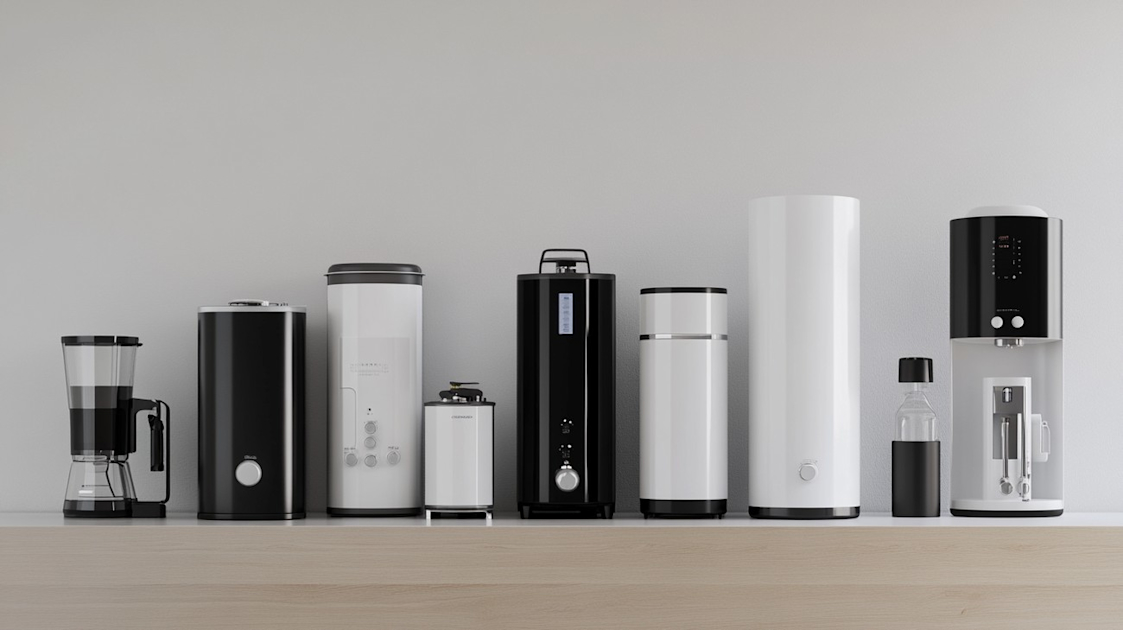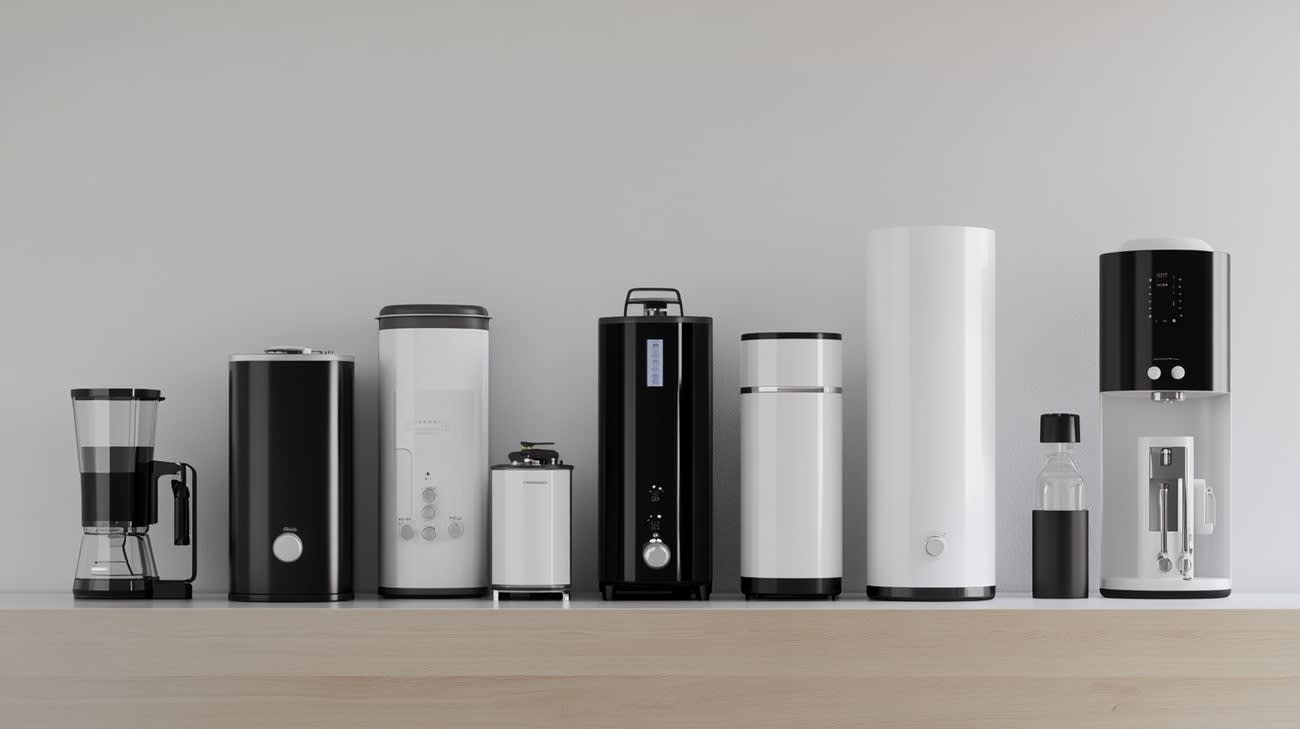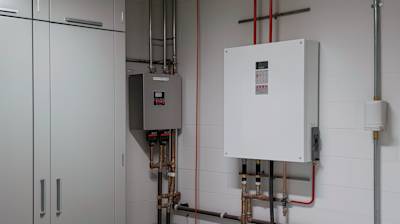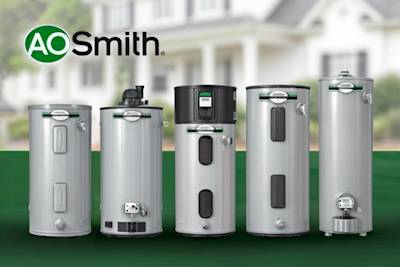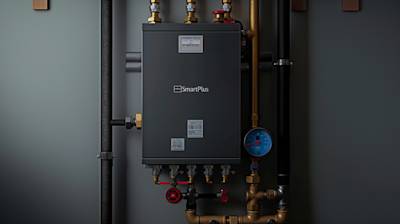Portfolio homes and offices alike, water heaters play an essential role in ensuring convenience and comfort. Serving multiple purposes like hot showers, dishwashing, laundry, and more, the lifespan of these home appliances is a topic of significance. This article offers a deep dive into the lifespan of water heaters, their maintenance, factors affecting their lifespan, and when replacement becomes necessary.
The Average Lifespan of Water Heaters
Standard water heaters usually last around 8-12 years. On the other hand, well-maintained units can perform exceptionally well and last up to 15 years or even more. Tankless water heaters can even exceed bounds with a whopping 20-year lifespan.
Factors Influencing the Lifespan of Water Heaters
A variety of elements influence the lifespan of water heaters:
Water Quality: Hard water affects the longevity of the water heater. Minerals in hard water increase sediment buildup, reducing the heater's overall lifespan.
Frequency of Maintenance: Regular repair and maintenance can help mitigate some of the issues and prolong their lifespan.
Installation Quality: Improper installation can decrease the lifespan of the water heater. Hence, professional help for installation is recommended.
Usage: The more frequently the heater is used, the more wear and tear it experiences, leading to a reduced lifespan.
Signs That Your Water Heater Needs Replacement
For consistent hot water supply, homeowners should stay ahead of potential issues. Here are some signs that your heater might need a replacement:
Old Age: If your water heater is reaching or has passed the decade mark, it may be time for a replacement.
Corrosion or Rust: If corrosion or rust appears on the unit, it is a clear warning sign that the heater is dying.
Noise: Loud noises, popping, or rumbling sounds indicate a build-up of sediment inside the tank which affects efficiency.
Leakage: Leaks from the tank pose potential harm and signal the necessity for replacement.
Maintenance of Water Heaters for Extended Lifespan
Regular maintenance of the water heaters safeguards their efficient operation and prolongs lifespan:
Annual Inspection: Annual maintenance and inspection by professionals assure the water heater's best performance.
Drain and Flush Water Heater: Draining and flushing the water heater annually helps remove the sediment build-up.
Monitor Water Heater Pressure: Regularly monitoring the water heater pressure prevents it from becoming too high, reducing chances of an explosive incident.
Insulate the Water Heater: Insulating the water heater reduces the heat loss by 25-45%, warming water faster and saving an energy cost of 7-16%.
Lifespan of Water Heaters - The Bottom Line
Assessing the condition and performance of your water heater can be a daunting task. However, understanding the lifespan of water heaters and maintaining them regularly can save you from sudden equipment failure and unwanted expenditure. Interacting with professionals can help assess your water heater's age, runtime, and condition, guiding you with repair or replace decisions. Remember, your water heater isn't immortal; however, effective maintenance can add multiple years of reliable service to its lifespan.
In the end, the consistent, uninterrupted flow of warm water in your faucets, dishwashers, washing machines, and bathrooms feels like a small luxury homeowners enjoy. Maintain this luxury with an understanding of your water heater, bringing consistent comfort to your home.

Frequently Asked Questions about Lifespan Of Water Heaters
Can the lifespan of a water heater be extended?
Absolutely, regular preventative maintenance can significantly prolong the lifespan of a water heater. This can involve tasks like flushing out the unit annually to prevent sediment buildup, checking for leaks, maintaining the heat setting, and inspecting the anode rod.
Does the type of water heater affect its lifespan?
Definitely. Tankless water heaters tend to last longer, sometimes as long as 20 years, compared to traditional tank-based models. Solar water heaters also have an extended lifespan, frequently lasting 20-25 years.
What are the indications that a water heater is nearing the end of its lifespan?
Several signs can indicate a water heater nearing the end of its life. These can include inconsistent water temperature, rust-colored water, increased heating time, frequent repairs, and obvious leaks around the unit.
Are the lifespans of gas and electric water heaters the same?
Slight differences exist in the lifespan of gas and electric water heaters. Often, gas water heaters, while more efficient, don't last as long as electric models due to the components being more prone to wear and tear.
Does hard water affect the lifespan of water heaters?
Yes, hard water containing high amounts of minerals can reduce the lifespan of water heaters. The minerals can build up inside the tank reducing its efficiency and causing it to wear out faster. Installing a water softener can mitigate this issue.
Does the quality of installation affect the lifespan of a water heater?
Proper installation is crucial for optimal water heater lifespan. If installed incorrectly, a water heater can face unnecessary stress, leading to a reduction in its lifespan. It is recommended to get your water heater installed by a certified professional.
How will I know if it’s more beneficial to repair or replace my aging water heater?
When your water heater nears the end of its lifespan, you'll encounter more frequent repairs. If you're repairing your water heater often, or if the repair costs more than half the price of a new heater, it might be cost-efficient to replace the unit entirely.
Does the frequency of use impact the lifespan of a water heater?
Absolutely, the more often a water heater is used, the shorter the lifespan it generally has. This is because increased usage leads to more wear and tear on the unit's components.
Can the lifespan of a water heater be predicted?
A precise prediction of a water heater's lifespan can be quite challenging, as it depends on many variables. However, you can gauge an average lifespan considering the model, usage, maintenance history, and the manufacturer's provided lifespan.
Can a warranty determine the lifespan of a water heater?
A warranty doesn’t necessarily determine the lifespan of the heater but it can give a general indication of the projected lifespan. A longer warranty often suggests a longer expected life, as the manufacturers have confidence in the durability of their units.
What measures can I take to maximize the lifespan of my water heater?
To maximize the lifespan of your water heater, ensure regular maintenance, timely repairs, and consider augmenting with a water softener if your supply is hard water. Additionally, regulating the temperature to a moderate setting (around 120-140 degrees Fahrenheit) can prevent overheating.
Does the brand of the water heater influence its lifespan?
Yes, as different brands can vary significantly in their build quality, design, and materials used. Some brands may be known for their longevity while others might prioritize cost-efficiency. Therefore, researching the brand before purchasing is recommended.

Pros of Water Heater Lifespan
1. Long Term Usage
Standard Lifespan
A main advantage of the lifespan of water heaters is that they are typically built to last. The standard lifespan of a good-quality water heater is around 10 to 15 years. This long lifespan means that homeowners can rely on their water heaters to serve them for extended periods.
Economic Benefit
Long lifespans are also economical for homeowners. Not having to replace the water heater every few years means a one-time cost, excluding minor repair expenses. This lifespan brings a significant economic benefit to homeowners, especially those on a budget.
2. Improved Models and Technologies
Energy Efficient Models
The newer models of water heaters are built to last longer. Improvements in heating technology, materials used, and energy efficiency features all contribute to a more extended lifespan. Water heaters with high energy efficiency can heat water quicker and consume less energy, thus reducing the strain on the heater and extending its lifespan.
Warranty Coverage
Another benefit is the manufacturer’s warranty, which usually covers the heater for a significant portion of its lifespan. This coverage gives the homeowner peace of mind that any significant issues within the warranty period will be taken care of by the manufacturer.
3. Environmental Benefits
Reduced Waste
One advantage of the extended lifespan of water heaters stems from environmental conservation. Having a water heater that lasts longer means fewer units will be disposed of over time, leading to less environmental waste.
Lowered Carbon Footprint
Long-lasting water heaters are usually more energy efficient, leading to a smaller carbon footprint. The extended use of a water heater means less energy consumed over its lifetime, thus reducing emissions.
Cons of Water Heater Lifespan
1. Unforeseen Breakdowns
Increased Risk of Failure
An obvious disadvantage of a longer water heater lifespan is the increased risk of failure. As water heaters age, the risk of component failure increases. This issue could lead to hot water shortages just when it's needed the most.
Potential for Damage
Older water heaters can lead to potential damages, including leaks or bursts that might cause significant water damage in the building. So, even if the water heater technically still operates after its typical lifespan, keeping it in use can bring unnecessary risks.
2. Declining Efficiency
Less Energy Efficient
As a water heater ages, it becomes less efficient. Sediment build-up inside the tank over time can make your water heater work harder to heat up the water to the desired temperature. This decline in efficiency would result in higher energy consumption and an inflated energy bill.
Quality of Hot Water
Older water heaters may also affect the quality of hot water, with potential issues like inconsistent water temperature or discolored or smelly water.
3. Maintenance and Repair Costs
Costly Repairs
Even though water heaters have a long lifespan, they will require maintenance and repairs over time. Some parts like the anode rod, heating elements or thermostats may require replacement. These costs can add up over time, especially for older water heaters.
Regular Maintenance
Keeping a water heater running beyond its average lifespan requires regular maintenance. This ongoing care may become a nuisance for homeowners and might lead to higher maintenance costs over time.
In Conclusion
While owning a water heater that has a long lifespan has its advantages, it comes with potential problems that homeowners should consider. Balancing the pros and cons, such as the ongoing maintenance costs and the risk of failure, homeowners can make an informed decision about when to replace their water heaters.

Myths and Misconceptions About the Lifespan of Water Heaters
Water heaters play an essential role in every home, providing hot water for a range of domestic uses. However, there are numerous misconceptions and Myths regarding the lifespan of water heaters that may result in less optimal usage or even unnecessary expenses. Understanding the truths behind these can lead to improved water heater life, performance, and cost-effectiveness.
Myth 1: All Water Heaters Have the Same Lifespan
The Belief
Many people believe that all water heaters, regardless of brand, type, or model, have the same general lifespan. This mistaken belief can often lead to unexpected early failures or unwarranted worry about perfectly functional units.
The Reality
The lifespan of a water heater can vary significantly based on factors including build quality, model, usage, maintenance, local water characteristics, and installation quality. On average, a standard tank water heater typically lasts 10-15 years, while tankless models can last 20-25 years with proper maintenance.
Myth 2: The Longer the Warranty, the Longer the Lifespan
The Belief
There is a common assumption that the warranty period of a water heater is indicative of its lifespan. Therefore, a unit with a longer warranty is often considered superior.
The Reality
The warranty of a water heater often only covers certain components or problems, and may not necessarily reflect the expected lifespan of the entire unit. A long warranty might indicate a manufacturer's confidence in their product, but it's not a surefire indicator of longevity.
Myth 3: A Water Heater Lasts Forever with Proper Maintenance
The Belief
Some people are under the impression that with adequate maintenance, a water heater can last indefinitely, making replacement unnecessary.
The Reality
Though proper maintenance can extend a water heater's life beyond the average lifespan, no unit lasts forever. Even the best-maintained water heater will eventually succumb to wear and tear, necessitating its replacement.
Myth 4: Installing a Water Softener Will Extend a Water Heater’s Lifespan
The Belief
Another common myth is that installing a water softener will extend a water heater's lifespan due to a reduction in mineral accumulation.
The Reality
While water softeners can help reduce scale buildup in tank water heaters, their impact on a water heater's lifespan depend on other factors, such as maintenance routine and tank material quality. In some cases, the salt in softened water can be corrosive to certain water heater components, potentially shortening its lifespan.
Myth 5: Age is the Only Factor in Deciding When to Replace a Water Heater
The Belief
Some homeowners believe that the age of the water heater is the central factor in determining when to replace it.
The Reality
While age is a vital factor, other elements also need to be considered, including the unit's performance, the frequency of required repairs, energy efficiency, and whether it meets the household's hot water requirements. A well-maintained unit might still serve effectively beyond its expected lifespan, while a neglected one might require replacement sooner.
Myth 6: Tankless Water Heaters Last Longer Because They Don’t Have a Tank
The Belief
Many people believe tankless water heaters have a longer lifespan simply because they don't have a tank to fail or corrode over time.
The Reality
Though it's true that tankless water heaters often last longer than tank models, it's not solely due to the lack of a tank. The longevity of tankless heaters is generally attributed to their design that only heats water on demand, reducing wear and tear, and their typically higher build quality.
Through busting these myths, homeowners can gain a realistic understanding of the lifespan of water heaters, which can assist in making informed decisions about maintenance, repair, and replacement.
Summary
So, what have we gathered about the lifespan of water heaters so far? Well, they serve your home for around 10-15 years on an average. The interesting thing here is, it's not just about the years, much depends on the proper maintenance and quality of the water passing through them. With regular checks and a bit of care, your water heater can even surpass its average lifespan, leading to stability in your everyday routines and prevented premature replacement costs.
Now we all love a hot, comforting shower after a tiring day, right? That’s the joy your water heater brings you. But one must remember that they aren’t everlasting. As we’ve seen, even the best water heater models have a finite lifespan. So, always stay aware of subtle signs of aging, like inconsistent heating, leaks or strange noises. Timely replacement can save you from emergencies, let’s say, unexpected cold showers or even water damage in your home.
To wrap up our talk about water heaters, it’s clear that they can last up to a decade or even longer if treated right. And, hey, don't underestimate the importance of the installation process in determining their lifespan. A well installed and regularly maintained water heater can significantly put off its retirement date. But remain prepared, because, just like many things in life, water heaters don’t last forever!
About West Coast Hydronics & Plumbing
At West Coast Hydronics & Plumbing of Sacramento, CA, we take immense pride in delivering high-quality plumbing and hydronic heating solutions. With our seasoned team of professionals in the plumbing industry, we dedicate our expertise, passion, and time-tested solutions to cater diverse needs of our clients. Whether you have a clogged drain, a broken water heater, or you need professional hydronic heating systems, we have got you covered! We believe in fostering strong relationships with our customers built on trust and reliability. So stick with us, because when it comes to plumbing – we don’t just do it, we ace it!

